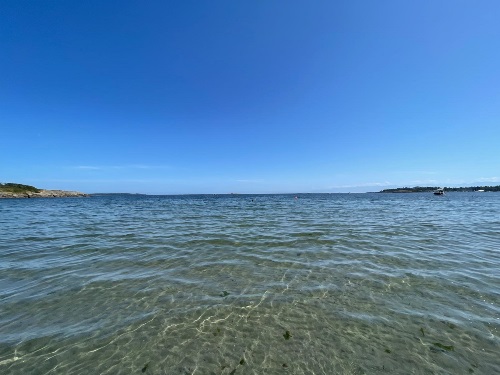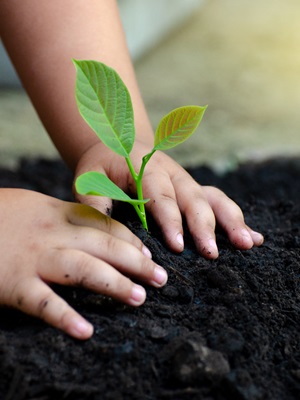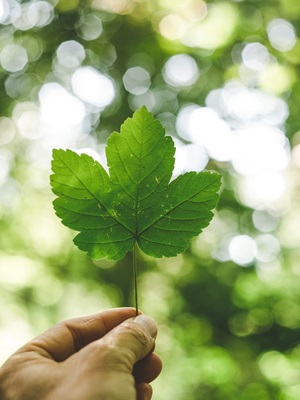Climate change has become one of those big, scary terms that a lot of people are afraid of. Some Singaporeans mask our fear by making thinly veiled statements like- ‘it’s been getting hotter recently’, and respond by turning the AC up and closing our blinds against the blazing sun outside. A lot of us consciously and unconsciously try to avoid the uncomfortable truth that our climate is changing rapidly, and choose not to acknowledge the full extent of the issues it has and will continue to cause. We cushion ourselves from the full extent of climate change in our controlled environments, choosing to ignore the fact that global warming is changing our climate rapidly because it has not fully impacted us yet. This is what is known as climate privilege.
Let’s use the April Heatwave in 2023 as an example. Last year, I decided to remain in Canada until June after completing my school term. Temperatures were at an all-time high worldwide but were particularly high in Asia. In West India, 13 people died from a heatstroke at an award’s ceremony, where temperatures were up to 45℃. Schools were shut down, and people struggles to live out their daily lives. This heatwave was record-breaking; people had died because of the extreme weather, but no one was talking about it in Canada. People went about their live, flocking to beachesand lakes, and installing AC units to keep cool. Most people, including myself, turned a blind eye to what was happening elsewhere, and focused on keeping ourselves comfortable. I felt helpless as I scrolled through the devastating news reports yet grateful that I did not have to endure the heat back in Singapore. Asia had taken the brunt of the climate change, allowing the rest of the world to turn a blind eye towards how scary this change really was.
Canada’s residents only started to become more aware of just how record-breaking the summer heat was when uncontrollable wildfires started to spread rapidly across the country, displacing 185,000 people. More than 16.5 million hectares of land was destroyed, and wildfire smoke had spread as far as New York, turning the sky a hazy orange typically seen in dystopian films. It was only then that North American residents were forced to come to terms with just how bad the climate situation had become, something they were able to avoid when it was occurring in Asia, and not in their own backyard.

While at first Canadians enjoyed the unusually warm end of spring, Asian was burning up under the extreme temperatures. Little did they know they would be soon to follow. Photo taken by Anya Mahtani
Countries in Asia, especially developing countries, are impacted the most by global warming. According to the United Nations, Asia is heating up faster than the global average, with poorer countries being the most susceptible to the impacts of climate change. Those living in poorer countries rely heavily on their local resources and agriculture to make a living, and hence feel its impact more harshly. As the temperature has increased over the years, precipitation levels have fallen, and more extreme events like droughts and typhoons have started occurring. The number of natural resources and the agriculture industry have suffered greatly because of the changing, unpredictable weather, resulting in higher levels of scarcity that cannot keep up with the growing population. Not only do these countries lack the resources and funds to adapt to climate change, the livelihoods of people living there will be severely impacted as the years go on. Most unfair of all, poorer countries only contribute one-tenth of the world’s emissions despite being the most heavily impacted.Even though other countries like Canada, the United States, and Singapore have the finances, resources and infrastructure that will help to pad the effects of climate change, we would be naïve to think that this will last forever. As developed as we are, we are still dependent on surrounding countries for agriculture and resources, which will continue to deplete as the Earth warms. Water will become scarce as precipitation decreases. Flooding risks will increase as sea levels rise, and it may soon become too hot to even be outside for more than an hour. Eventually, only the extremely wealthy will be able to afford basic commodities, which even then does not guarantee their survival.
The harsh reality is, at some point, climate change will affect us all. Some might lose their houses to rising sea levels, some might die of heat stroke, some might not be able to feed their family because of the loss of agriculture, the list goes on. Right now, less economically advantaged countries are the first to feel the effects, but wealthier countries will be soon to follow. By remaining comfortable in our privileged position, we put off finding solutions tackling the issue at hand. If we let this go on, the Earth will become a barren landscape unsuitable for human life. The first, scariest, and most important step, would be to stop hiding from the fact that our Earth is dying. By acknowledging our privilege, we can then use it by donating our time, money, and skills to stop climate change from progressing any further. We need to wake up, and fast, if we are to have any hope for a future.
Posted 21/05/2024

















